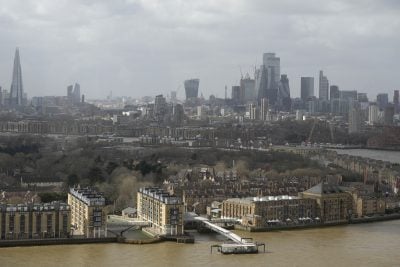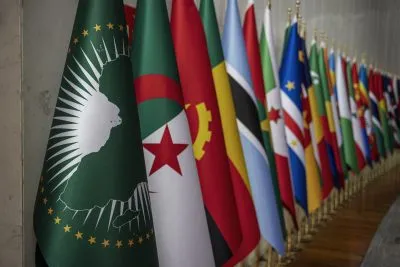In the latest chapter of a long-running story, the Malawian government this July sold 75% of the Malawi Savings Bank (MSB) to the privately-owned FDH Financial Holdings in a surprise move.
The sudden deal provoked widespread criticism, with opposition coming from various groups including parliament, which threatened to challenge the decision in court because of what it said was a lack of transparency in the process.
The decision to sell the bank dates back to 2013 in response to advice from the World Bank and the International Monetary Fund after the bank failed to meet minimum liquidity requirements.
The two institutions said they observed that politically connected individuals had received huge loans from the MSB but were failing to repay them, a move they said was compromising the bank’s operation.
The Reserve Bank of Malawi also said in its 2014 report that the MSB needed $48m in capital and liquidity by June 2015 to avoid it being struck off by the central bank.
This forced the Public Private Partnership Commission to look for strategic investors to buy controlling stakes in MSB.
However, this idea did not go down well with parliament and civil society organisations, who put up stiff resistance earlier this year when the government announced that it was selling a 75% stake for $12m to FDH, the only bidder.
Members of the Budget and Finance Committee described the offer as an “epic swindle”. They pointed out that with over 70 branches countrywide, the MSB is the only bank that covers rural areas in which over 80% of Malawians live and argued that selling it would deprive these Malawians of banking services.
Civil society organisations then held protests in May following the government’s announcement it was clearing the bank’s toxic loans of about $13m owed to the bank by private sector players – 80% of whom, it was alleged, are ruling party politicians.
In a petition to the Speaker of Parliament, read by activist Billy Mayaya, campaigners argued that they would not allow taxpayers’ money to pay off loans for “greedy politicians and businessmen”.
They threatened to hold vigils at parliament and all MSB branches countrywide should government fail to comply with their demand for the government to recapitalise the bank.
This strong opposition forced Malawi’s President Peter Mutharika to suspend the bank sale in June, saying in a press statement that he wanted “to provide more room for further consultations”.
Many Malawians experienced a rude awakening therefore on 3rd July, when the government held an impromptu signing ceremony in Lilongwe in which 75% of MSB’s shares were sold to FDH for $21.1m. The move came as the country was still awaiting the report from the consultative meeting by various stakeholders on the proposed bank sale.
It also came two days after parliament released a report on the proposed deal in which they recommended that the government should instead work on the bank’s recapitalisation over the next four years, by which time, the report said, the MSB would have regained its financial stability.
A controversial deal
Finance Minister Goodall Gondwe told reporters in the capital Lilongwe that the deal was necessary and that the alternative would have cost the government a lot of money.
“The issue is that MSB did not have enough capital to discharge the responsibility as required by the banks and this could have affected the whole banking system,” he said. “So it would mean government putting in some money every year from the budget to save the bank from collapse. We think that would not have been the way to handle matters and that is why we thought we should get rid of it.”
Gondwe said that many Malawians were concerned with the bidding process – which he conceded could have been better handled – rather than the principle of selling the bank.
“During the meetings with stakeholders, we were criticised not because we wanted to divest but because of the lack of transparency that we admitted should have been exhibited during the bidding process…We were all in agreement that these banks had to be sold,” he said.
Lazarus Chakwera, leader of the opposition, agreed with this latter point, but said in parliament that by going ahead with deal amid protests, the government had demonstrated a great degree of arrogance. “I am disappointed not because they have sold the bank, I am disappointed because of the process that has led to selling the bank,” he said. “Government has demonstrated that dealing with issues that Malawians raised, which parliament raised on their behalf, is not as crucial as sticking to the decision that has been made. And I am concerned because we are sending the message up there that the people’s representatives in the parliament and what they recommend do not matter.”
Mayaya, who led the civil society organisation protests, said in a press conference that the government had hoodwinked Malawians in selling the bank.
“In one of the resolutions made during the recent stakeholders’ meeting, it was observed that the bidding process was flawed and should have been done in a transparent manner,” he said. “But the government has not been transparent and accountable. We protested the way the bidding process was done. Usually, the procurement process demands that there should be at least three bidders who would compete for the bank. But that was not the case.”
Mayaya said he feared that the government will now go ahead in using taxpayers’ money to offset toxic loans owed by government cronies. But Finance Minister Gondwe disputed this.
“As for toxic loans, government is not in the habit of collecting debts, but we created a Special Purpose Vehicle, an entity made up of prominent Malawians. These are people of integrity to deal with bad debts relating to MSB. And we have entrusted them with that responsibility,” he said.
Blessings Chinsinga, Political Science Lecturer at the Chancellor College of the University of Malawi, told local radio that although the idea to sell the bank may seem economically viable, it is politically unsound. “There was a consultative process and people raised credible objections to the sale of the bank,” he said. “And when the president intervened, the expectations of all stakeholders were that there will be a process that will engage each and every stakeholder as a way of leading to a logical conclusion of what would be the way forward.
“The fact that the government has chosen to go ahead with the sale, regardless of the objections by the public, may raise significant concerns in the public that the government is not listening to the views of the people.”
CEO of FDH, Thom Mpinganjira, allayed fears that employees of the MSB are likely to lose their jobs. “MSB is a bank which has a vast network that has been mismanaged. What we are trying to do is to turn it around and we cannot turn it around or expand it by closing branches or its agencies or by dismissing staff,” he said.
He was optimistic the bank will be back in shape in four years, but at the end of July ordered a forensic audit of MSB and claimed $6.5m more needed to be injected to meet capital requirements than originally thought, according to Nyasa Times.
In an interview with state television, President Mutharika trashed calls from civil society and opposition politicians for him to resign for selling the bank in “mafia-like style”.
Mutharika, who is a lawyer by profession, said parliament had no legal mandate to stop the sale of the bank and challenged those who are planning to seek legal redress over the matter to go ahead.
Lameck Masina
Want to continue reading? Subscribe today.
You've read all your free articles for this month! Subscribe now to enjoy full access to our content.
Digital Monthly
£8.00 / month
Receive full unlimited access to our articles, opinions, podcasts and more.
Digital Yearly
£70.00 / year
Our best value offer - save £26 and gain access to all of our digital content for an entire year!
 Sign in with Google
Sign in with Google 


